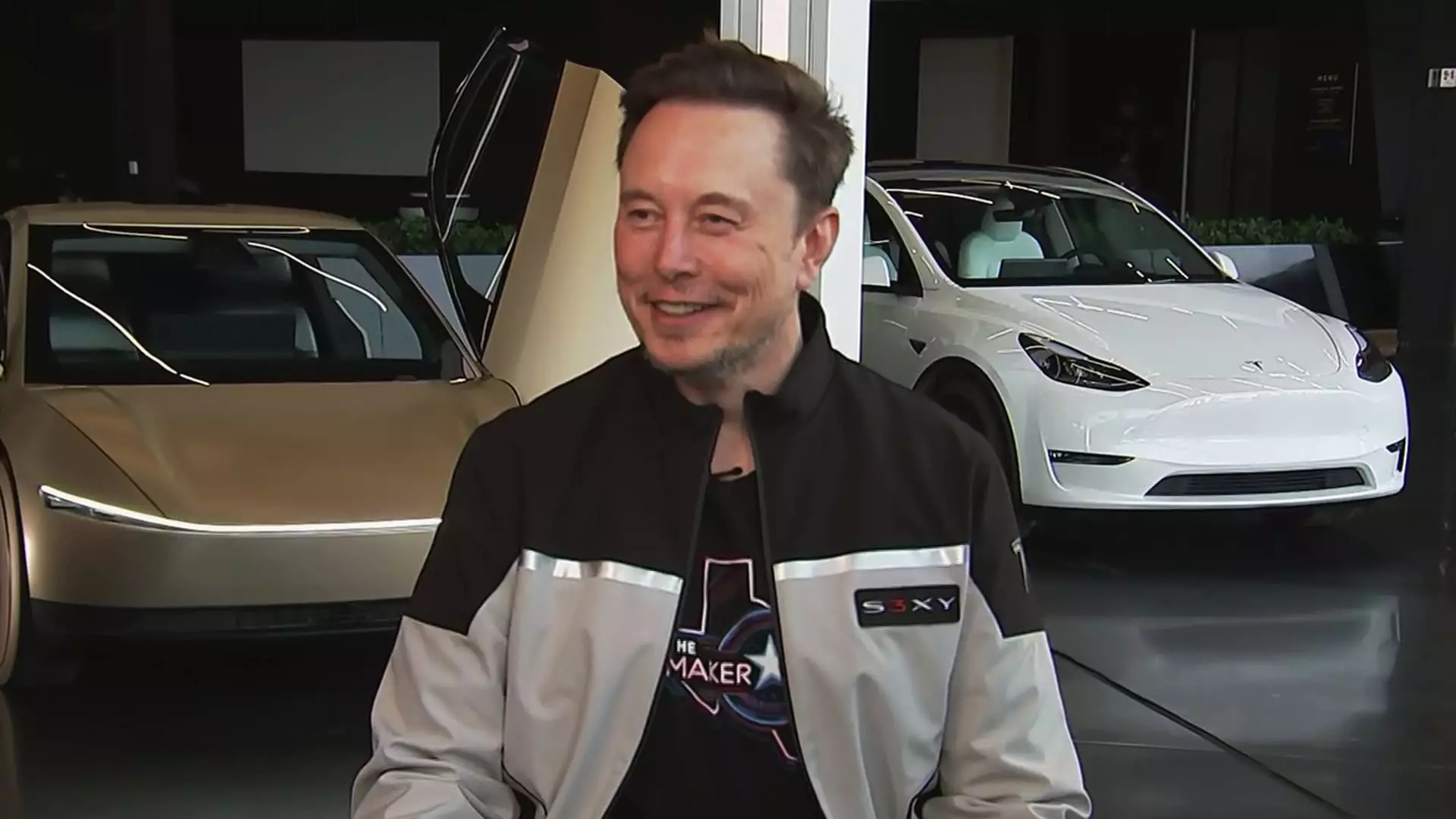Elon Musk, the polarizing figure renowned for his audacious ventures and braggadocio, has once again ignited discussions about the future of artificial intelligence (AI). In a recent interview with CNBC, he conveyed a powerful message about the dependency of AI on semiconductor chips manufactured by industry titans such as Nvidia and AMD. The technological narrative he is crafting around his company xAI, which recently acquired the social media platform X, is nothing short of captivating yet fraught with complexities. Musk boldly claimed that xAI currently operates a staggering 200,000 Graphics Processing Units (GPUs) at its Colossus facility in Memphis, Tennessee, with plans for expansion featuring a monumental 1 million GPU installation nearby.
While Musk’s technological ambitions are commendable, they raise pressing ethical concerns. The clear inference is that as much as innovation drives society forward, so does the environmental impact of such monumental operations, particularly in areas like Memphis, which is being transformed into a high-tech manufacturing hub. There lies a paradox: the pursuit of groundbreaking innovations directly conflicts with the sustainability and well-being of local communities. This juxtaposition highlights Musk’s vision as both ambitious and potentially reckless, casting a long shadow over the possibilities he presents.
The Price of Progress: Environmental Consequences
Local communities have rallied in opposition to the power-hungry operations of xAI, which utilize natural gas-burning turbines to supply energy to the supercomputer. The emissions produced by these turbines have contributed to local air quality degradation, pointing to the darker side of technological advancement. There’s a rising tide of skepticism regarding the way companies like xAI skirt around essential environmental regulations. Reports indicate potential violations of the Clean Air Act, raising dire questions about Musk’s commitment to social responsibility.
While the innovation of AI can be a catalyst for positive societal transformation, the environmental cost cannot be ignored. This should serve as a wake-up call to tech leaders and policymakers alike: progress cannot justify the personal and public health consequences that pollution incurs. Musk’s vantage point on AI as a futuristic endeavor stands on shaky grounds if built upon a foundation of disregard for environmental health—a point he seems to overlook with alarming frequency.
The Race for Resources: A Vision of Energy Shortages
Musk’s foresight extends beyond chip dependency; he paints a picture of an impending crisis that revolves around energy generation. He predicts that by mid-2026, the lack of adequate electrical resources will hinder further AI development. This prediction raises definite alarm bells, especially in the context of global competition in power generation. While Musk elucidates on China’s investments surpassing those of the U.S., he doesn’t take full responsibility for the American landscape, which includes a complex and often fragile energy infrastructure.
Therein lies a critique of the American technological narrative: Shouldn’t our innovation incorporate sustainable practices and insist upon a commitment to developing renewable energy resources? Rather than only identifying the threats posed by international competitors, Musk could use his platform and influence to advocate for a paradigm shift toward greener technology. If there’s anything we’ve learned from the climate crisis, it’s that tomorrow’s innovation must not come at the cost of our planet today.
The Muskonomy: A Dystopian Vision of Corporate Consolidation
Musk’s portfolio of companies often evokes discussions about the “Muskonomy,” a term coined to signify the interconnected operations of Tesla, SpaceX, and now xAI. In discussions about the potential merging of xAI and Tesla, however, a deeper concern emerges regarding monopolistic tendencies in the tech world. Corporate consolidation often leads to a homogenization of ideas and stifles competition, which is critical for fostering innovation. Musk’s cavalier attitude towards the possible amalgamation of these entities could undermine the diversity of thought that fuels creativity and technological advancement.
It is essential for stakeholders and society at large to remind Musk that while innovation reigns supreme, a robust regulatory landscape must be established to prevent corporatism’s insidious encroachment on democracy. The tech giants should function within an ecosystem that emphasizes accountability and ethical considerations rather than unchecked growth. This becomes crucial as we ponder the implications of technology in our lives, revitalizing the debate about who truly regulates the reign of innovation—visionary leaders like Musk or a well-informed, engaged public.


Leave a Reply